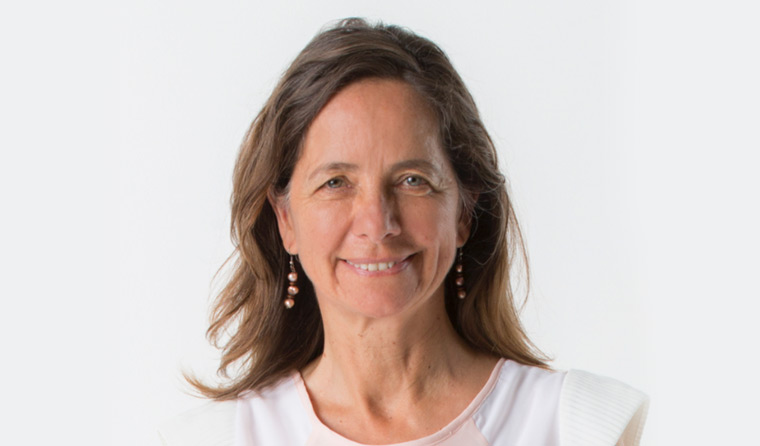News
Is it time to rethink medicinal cannabis use for mental health?
New research has found medicinal cannabis does not help to treat a number of mental health disorders.
 Researchers examined the use of medicinal cannabinoids and their impact on six common mental health disorders.
Researchers examined the use of medicinal cannabinoids and their impact on six common mental health disorders.
‘There remains insufficient evidence to provide guidance on the use of cannabinoids for treating mental disorders within a regulatory framework.’
That is Professor Louisa Degenhardt of the National Drug and Alcohol Research Centre (NDARC) at the University of New South Wales. She is lead author of a new study published in The Lancet Psychiatry.
The new research found limited evidence that medicinal cannabinoids improve the symptoms of mental health disorders, suggesting their use cannot be justified based on current evidence.
The research analysed 83 studies that included 3000 people.
Researchers examined the use of medicinal cannabinoids and their impact on six mental health disorders:
- Depression
- Anxiety disorders
- Attention-deficit hyperactivity disorder
- Tourette syndrome
- Post-traumatic stress disorder
- Psychosis
While the research found no high-quality evidence of benefit for these conditions, it did find evidence of ‘very low’ quality that pharmaceutical tetrahydrocannabinol (THC) may lead to a small improvement in symptoms of anxiety in individuals with other medical conditions, such as chronic pain or multiple sclerosis.
‘Given the large amount of interest that many people express in the use of cannabinoids for mental health, our greatest surprise – and cause for concern, given its increasing use – was about the lack of data that provide guidance about which mental health concerns, and for which groups of people, cannabinoids might in fact be useful,’ Professor Degenhardt told
newsGP.
She said the research aimed to fill that gap by systematically examining the evidence.
Based on the results, Professor Degenhardt believes it is time to rethink how medicinal cannabis is used for mental health disorders.
She also voiced concern over its current use.
‘One of the most striking things about the spread of legislation in multiple countries permitting cannabis or cannabinoids for medicinal purposes is that this is, in many instances, happening outside of the regulatory frameworks that medicine development typically occurs within,’ she said.
‘In most instances, medicines must be scientifically tested and are then scrutinised by government regulatory bodies who make decisions about whether a given pharmaceutical product merits registration for a particular indication, and for government subsidy, where such systems are in place.
‘What has been striking is that cannabinoids are being made available outside of those typical processes.
‘Circumventing these processes means there is a risk that people use cannabinoids instead of – or in addition to – other medicines of some proven effectiveness, and that they may not have benefit.’
Professor Degenhardt said there are also other issues to consider when recommending cannabinoids for mental health disorders, including long-term use of cannabis.
‘People may be at risk of some of the health harms that have been observed in people taking cannabis regularly for recreational purposes, which includes development of cannabis dependence,’ she said.
 Dr Vicki Kotsirilos would not discredit the use of medicinal cannabis for mental health disorders based on this new research alone.
Dr Vicki Kotsirilos would not discredit the use of medicinal cannabis for mental health disorders based on this new research alone.
GP and integrative medicine practitioner Dr Vicki Kotsirilos became Australia’s first GP authorised to prescribe medicinal cannabis in May last year.
She told
newsGP she is not surprised by the findings of this new research, mainly due to issues relating to heterogeneity of studies.
‘Heterogeneity means you’re looking at a whole range of different products at different dosages in different forms, such as CBD [cannabinoids] alone versus various concentrations of combined CBD THC, for different conditions for different individuals,’ she said.
‘So when you get a heterogeneity for different medicinal cannabis products for different individuals, and some are more sensitive than others, it’s very hard to put all those results together and come to an overall conclusion.’
Consequently, Dr Kotsirilos hopes GPs will not be dissuaded from recommending medicinal cannabis based on these results.
‘I wouldn’t discredit medicinal cannabis at this stage at all,’ she said.
‘I would be concerned if GPs don’t provide the opportunity for their own patients [to be prescribed medicinal cannabis for mental health issues] when it’s clinically appropriate.’
In contrast, Dr Kotsirilos believes recreational cannabis should be discouraged due to potential harmful effects.
While not a ‘magic bullet’, Dr Kotsirilos said medicinal cannabis can be helpful in certain circumstances, mainly as a ‘last resort’ when patients are not responding to conventional care.
In fact, she said the
Therapeutic Goods Administration (TGA) currently allows access to medicinal cannabis products for mental health conditions such as anxiety, post-traumatic stress disorder and aggressive behaviour. Meanwhile, she said its use is contraindicated in depression and psychosis.
Professor Degenhardt and Dr Kotsirilos believe more research is needed into this issue.
‘Until evidence from randomised controlled trails is available, clinical guidelines cannot by drawn up around their use in mental health disorders,’ Dr Kotsirilos said.
‘Clearly we need more research.’
Professor Degenhardt agrees, saying more high-quality randomised controlled trials are needed to properly assess the effectiveness and safety of medicinal cannabinoids, compared with both placebo and standard treatments, for the treatment of mental disorders.
‘This evidence is essential before clinical guidelines can be provided about the medicinal use of cannabinoids for these disorders,’ she said.
The RACGP released a 2019 update on the
Use of medicinal cannabis products. It highlighted the need for further high-quality research into the safety and effectiveness or medicinal cannabis products, saying current evidence is ‘limited and inconclusive’.
Login below to join the conversation.
medicinal cannabis mental health
newsGP weekly poll
Which of the following areas are you more likely to discuss during a routine consultation?